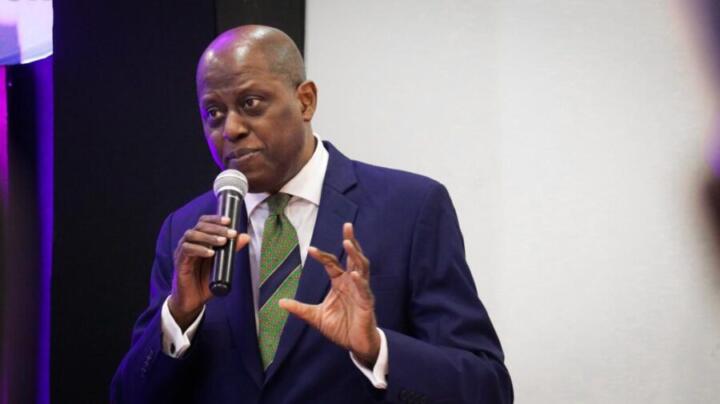The Governor of the Central Bank of Nigeria (CBN), Dr. Olayemi Cardoso, has reiterated the apex bank’s unwavering commitment to achieving and maintaining price stability as a cornerstone of Nigeria’s economic recovery efforts. Speaking during an engagement with financial stakeholders in Abuja, Cardoso emphasized that the CBN remains resolute in implementing monetary policies aimed at curbing inflation, stabilizing the exchange rate, and restoring confidence in the financial system.
According to the CBN governor, the institution’s priority remains taming inflation, which has been a major challenge for the Nigerian economy, as well as ensuring macroeconomic stability that supports sustainable growth. Cardoso noted that recent reforms implemented by the bank are already yielding positive results, with inflation showing signs of moderating and foreign exchange liquidity improving. He reaffirmed that the CBN will continue to deploy data-driven and evidence-based policy measures to consolidate these gains.

“The Central Bank of Nigeria is fully committed to achieving price and monetary stability, which are crucial for economic growth and long-term investment confidence. We understand the importance of stability in managing inflationary expectations and creating a conducive environment for productivity,” Cardoso said.
He pointed out that the CBN has taken bold steps to sanitize the foreign exchange market, enhance transparency, and attract foreign investment. Among these steps are the unification of the foreign exchange windows, the clearance of verified FX backlogs, and improved market communication to ensure investor confidence. The governor also highlighted the role of collaboration between fiscal and monetary authorities in ensuring that both policy arms work cohesively toward a common goal of economic recovery.
Cardoso stressed that while the inflation rate remains elevated, the CBN’s tight monetary policy stance has begun to yield measurable results. He explained that recent moderation in inflationary pressures, coupled with a gradual improvement in foreign exchange stability, are indicators that the policy direction is effective. He added that the CBN will maintain vigilance to ensure these early gains are not eroded by external shocks or domestic imbalances.
The CBN governor also underscored the importance of public confidence in achieving the institution’s objectives. “Building credibility takes time, but we are determined to ensure that every action we take reinforces trust in the central bank’s ability to maintain stability. This is not just about the CBN; it is about restoring confidence in Nigeria’s entire financial ecosystem,” he remarked.
Cardoso highlighted several key reforms that have shaped the current monetary framework, including the introduction of a more transparent exchange rate mechanism and the strengthening of the Bank Verification Number (BVN) and Know Your Customer (KYC) systems to curb illicit financial flows. These initiatives, according to him, are central to promoting accountability and ensuring that monetary policy outcomes align with national economic goals.
He further noted that the bank’s efforts are being supported by improvements in the external reserves position, driven by a more stable exchange rate regime and increased foreign inflows. This, he said, has enhanced Nigeria’s ability to meet its international obligations and maintain investor confidence. Cardoso assured stakeholders that the CBN would continue to pursue foreign exchange market reforms to deepen liquidity and promote long-term stability.
On interest rates, Cardoso maintained that the Monetary Policy Committee (MPC) would continue to adopt a cautious and data-sensitive approach. He noted that while tightening measures may constrain credit growth in the short term, they are necessary to reduce inflationary pressures and stabilize the economy. “We will strike a balance between growth and stability, but our immediate task is to restore price stability, which is the foundation for sustainable economic expansion,” he said.
The CBN governor also addressed concerns about the banking sector’s health, reaffirming that Nigerian banks remain resilient and adequately capitalized to withstand macroeconomic headwinds. He disclosed that the ongoing recapitalization initiative would further strengthen banks’ ability to support the economy, especially in financing large-scale infrastructure and industrial projects.
Cardoso added that the CBN is closely monitoring developments in the global economy, especially in emerging markets, to mitigate potential spillover effects on Nigeria’s financial system. He said that external factors such as rising global interest rates, geopolitical tensions, and fluctuating commodity prices remain challenges that could influence domestic monetary policy decisions.
Furthermore, he expressed optimism that the federal government’s ongoing fiscal reforms—particularly those aimed at improving revenue collection and rationalizing expenditure—will complement the CBN’s monetary efforts. He emphasized the need for coordination between both arms of policy to ensure that Nigeria achieves a balanced and sustainable macroeconomic trajectory.
Market analysts have lauded Cardoso’s consistent policy direction, noting that his emphasis on stability has helped rebuild investor confidence in Nigeria’s monetary system. They observed that foreign investors are gradually returning to the market, with renewed interest in government securities and the equities market, driven by improved transparency and predictability in monetary operations.
Economic experts have also pointed out that the CBN’s reforms are beginning to create a more disciplined financial environment. The continued decline in speculative trading in the FX market, they said, is evidence of restored confidence and policy effectiveness. However, they advised the CBN to remain cautious and ensure that the tightening measures do not overly constrain access to credit for small and medium enterprises (SMEs).
In conclusion, Cardoso reaffirmed that the Central Bank will continue to pursue stability-oriented policies anchored on transparency, discipline, and collaboration. He reiterated that the bank’s long-term goal is to ensure a stable naira, lower inflation, and a monetary environment that supports productive investment and inclusive growth. “We are on the right path. Our policies are working, and with continued discipline, Nigeria’s economy will experience sustained stability and prosperity,” he declared.
Support InfoStride News' Credible Journalism: Only credible journalism can guarantee a fair, accountable and transparent society, including democracy and government. It involves a lot of efforts and money. We need your support. Click here to Donate
